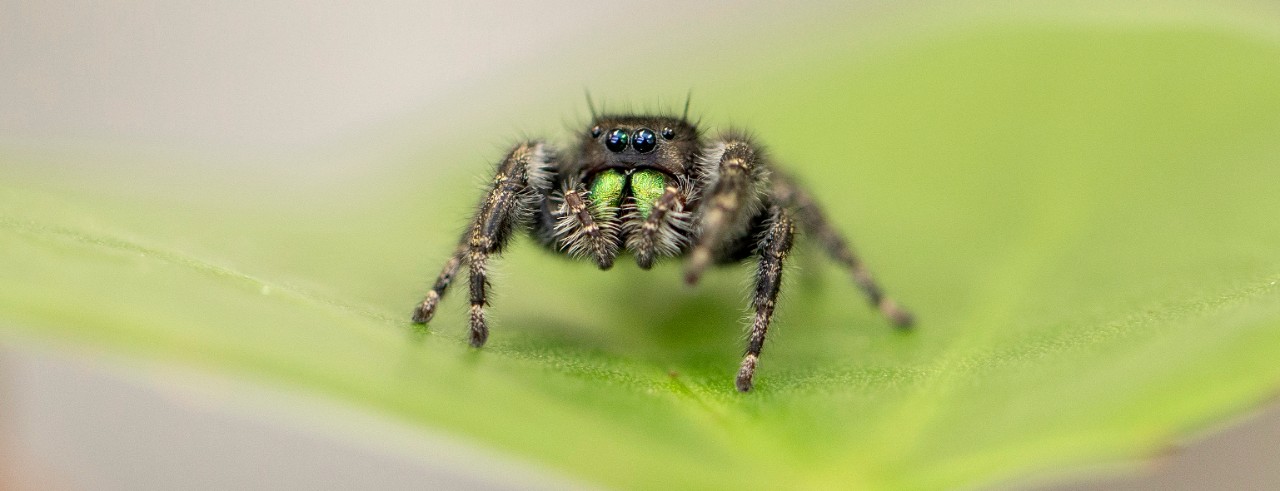
Scientific American: Baby jumping spiders see surprisingly well
UC biologists found that baby spiders have vision nearly as good as their parents
Biologists at the University of Cincinnati have demonstrated that baby jumping spiders have vision nearly as good as their parents.
It's an understandable adaptation for a predator that hunts for a living. But until now, scientists weren't sure how they managed it.

UC biology professor Elke Buschbeck. Photo/Ravenna Rutledge/UC Creative Services
Scientific American spoke to UC associate professor Nathan Morehouse about how baby spiders fit the architecture of their keen vision into such a tiny package. Morehouse, UC biology professor Elke Buschbeck and Morehouse's former student at the University of Pittsburgh, John Thomas Gote, co-authored a study that appeared in the journal Vision Research.
Morehouse and Buschbeck used her custom-made micro-ophthalmoscope to examine the eyes of baby spiders. They found that the baby spiders have the same number of photoreceptors as adults but packed differently to fit in a smaller volume.
Morehouse is using a National Science Foundation grant to study spider vision around the world. He traveled to Singapore with an international team of researchers earlier this year.
"Even arachnophobic people find these little jumping spiders to be compelling – they dance, they sing vibratory songs to each other,” Morehouse told the magazine.

UC biologist Nathan Morehouse uses microspectrophotometry in his lab to measure how photoreceptor cells in spiders absorb light. Photo/Jay Yocis/UC Creative Services
Become a Bearcat
Do you like the idea of conducting your own biology research? Apply online or get more information about undergraduate enrollment by calling 513-556-1100. Learn more about UC's many undergraduate and graduate programs.
Related Stories
There once was a biologist who talked to spiders …
July 9, 2025
UC biologist and spider expert Nathan Morehouse helped a writing collaboration at Kent University explore our common ground with these eight-legged creatures that fascinate us.
New Dungeons & Dragons ethics seminar takes flight
July 7, 2025
On a blisteringly hot summer day, laughter echoed through the cool, damp basement of the Avondale branch of the Cincinnati Public Library. Young teenagers huddled around a table littered with pencils and paper, rolling dice and bonding over a game of Dungeons & Dragons. University of Cincinnati undergraduate student Charitha Anamala sat behind a trifold card with a blazing red dragon on it, serving as the group’s Dungeon Master (DM) or campaign organizer. Within the fantasy setting she described, it was hard to tell the adventure was a lesson in ethics.
UC language studies program adopts new technologies
July 7, 2025
Cultural immersion is a tried-and-true method for teaching languages. U.S. students travel abroad—to Europe, Latin America, Asia and beyond to take a deep dive into the customs, mores, daily life and conversational language that can be challenging to master from home. For those students who can't take advantage of the study-abroad experience, there's another option to gain the same learnings. At UC, the Curricular Enhancement, Development, Access and Research Language Resource Center (CEDAR) has developed a curriculum that features virtual reality (VR) technology to give students a similar opportunity right in the classroom.
